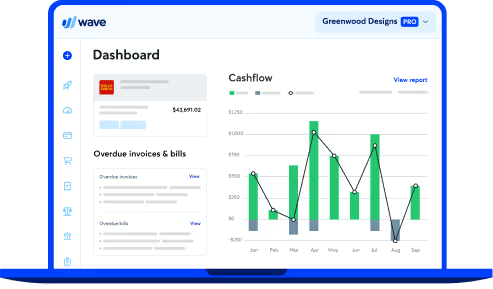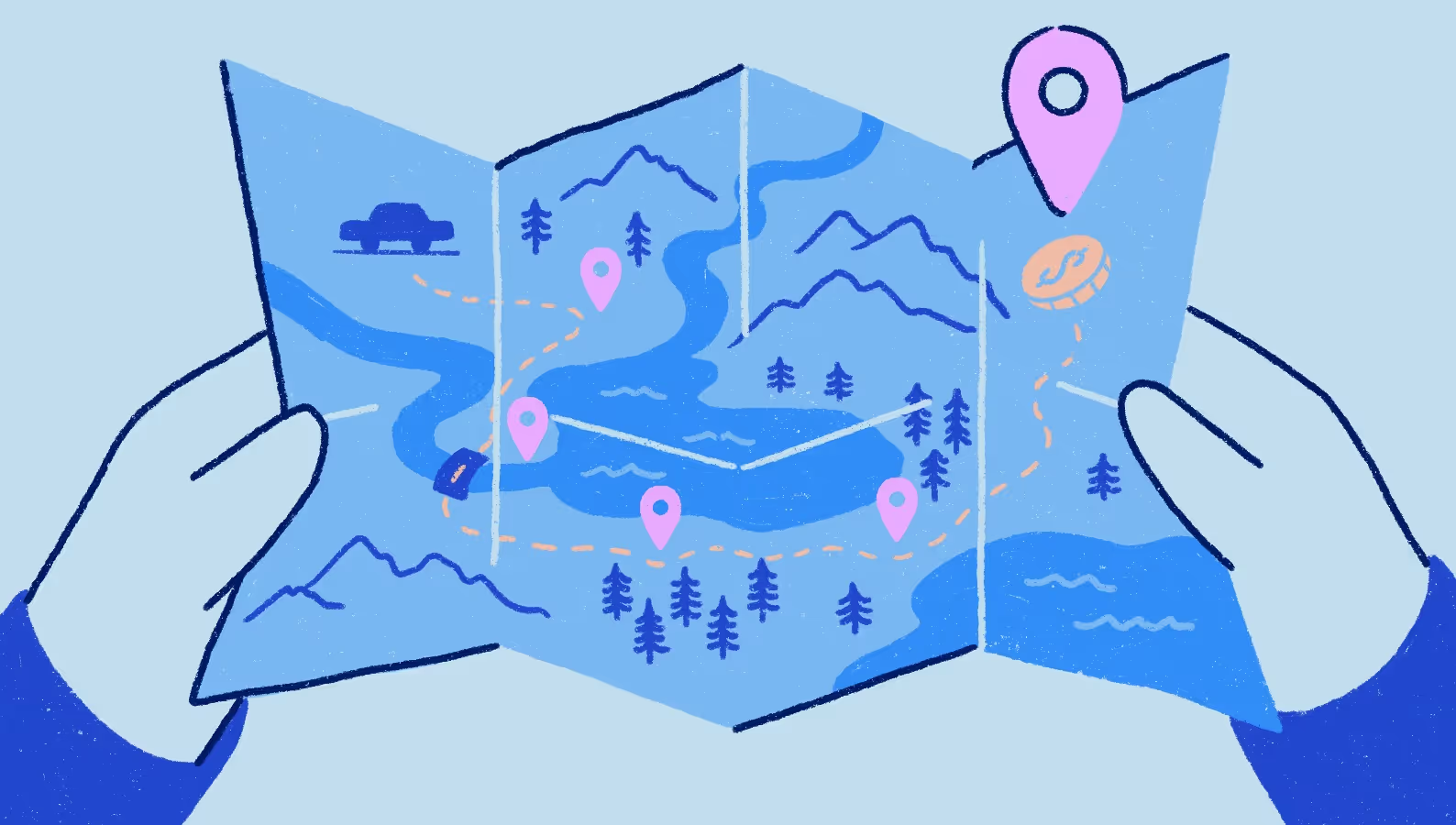
How to Get a Business License in Florida: The Ultimate Guide
Florida is a great place to start a business. And no, not just because of the beaches and warm sunshine—it’s also very small business-friendly, and there are tax benefits in Florida you and your business could reap. Florida has no income tax and boasts other appealing tax policies. Plus, corporations in Florida only need to pay 5.5% on their corporate income tax return and aren’t required to pay payroll tax.
One step in making your dream business a reality is getting the proper licensing, which can vary depending on what state you’re in. As you can probably already tell, we’ll be talking about business licensing in Ohio. Just kidding, we were just checking to see if you were reading carefully. 😉
Okay, but seriously, we’ll be talking about business licensing in Florida. We’ll cover the different types of business licenses, how to obtain a business license in Florida, what the process entails, and what the requirements are.
Do you need a business license in Florida?
Let’s jump right into it and answer the question on everyone’s mind: “Do you need a business license in Florida?” The answer? *drum roll* ….It depends!
You will very likely need to get a business license on a local level. Florida does not require state-level operating licenses, but it does require state licenses and certifications for certain types of work that involve extensive training or may expose customers to hazards (think accountants, engineers, medical professionals, cosmetologists, etc.). Federal business licenses for your Florida business may also be necessary depending on your industry, but more on that in the next section.

Types of business licenses in Florida
In Florida, business licenses are regulated on a local, statewide, and federal level. How many and what types of licenses or permits you’ll need depends on your city and your industry. Let’s get into an overview of the business licenses you may be required to get in Florida.
Local Florida business licenses
While stateside licensing can vary depending on your industry, almost all Florida businesses will need to get local licenses. You may need a city-specific license and a county-specific license, but this depends on your location.
Most counties or cities in Florida require that businesses have a business tax receipt, which is a type of general business operating license. If your business provides services or merchandise, you’ll need one.
A Fictitious Business Name (FBN) or Doing Business As (DBA) registration may also be necessary if the name you registered your business under is not the same as the name of your business.
You can consult the State of Florida’s Business Information Portal to find information for your specific city or county.
Statewide business licenses in Florida
Florida does not require state-level operating licenses (in other words, you don’t need a license just to exist as a business in Florida), but there are three state-level agencies that license specific types of businesses. This isn’t the entire list of businesses that need licenses, just a high-level overview of the three agencies:
- Florida Department of Business and Professional Regulation (DBPR): alcohol and tobacco, architecture and interior design, barbers, the construction industry, cosmetology, engineers, farm labor, hotel and restaurants, landscaping, real estate, and more.
- Florida Department of Agriculture and Consumer Services (DACS): the agricultural industry, education, energy, food and nutrition, forest and wildlife, and water.
- Florida Department of Health (FDOH): healthcare professions, dental laboratories, emergency medical services, massage establishments, optical establishments, etc.
Additionally, a business tax application called the Florida Annual Resale Certificate for Sales Tax (phew, that’s a mouthful) is needed if you’re selling taxable goods or services, so almost all Florida businesses will need one. It’s pretty much the same thing as a seller’s permit.
Federal licenses and permits
Federal licenses and permits are needed if your business activities are regulated by a federal agency. You may need to get federal licensing for the following business operations:
- Agriculture (transporting animals or animal products across state lines)
- Alcohol
- Aviation
- Firearms
- Fish and wildlife
- Commercial fisheries
- Mining and drilling
- Nuclear energy
- Radio and television broadcasting
- Transportation

How to get a business license in Florida: 5 easy steps
By now, you should have an idea of the type of licenses or permits you will need on a local, state, and federal level. So, let’s cover how to get any necessary business licenses in Florida. Here are the five easy steps you need to take to start your business and get those licenses!
1) Name your company and form it in Florida
The first step? Actually having a business to license. We have a whole in depth article on starting a business in Florida, but here’s the gist of it:
- Choose a unique business name
- Create a business plan that covers your plans for business operations and finances
- Determine your business structure (sole proprietorship, corporation, limited liability company, or nonprofit)
- Get a business address and phone number
- Get an employer identification number (EIN)
- Register your business with the Florida Department of State
- Register your business with the Florida Department of Revenue
- Insure your business
2) Apply for the Florida business tax certificate
Let’s start at the local level by applying for the Florida business tax receipt. As we mentioned before, almost all Florida businesses will need a business tax receipt. You can find the appropriate paperwork on your city’s website. After your application has been approved, you can expect to receive your business tax receipt through the mail or online within a few weeks.
Keep in mind, some cities, like Miami, require both a business tax receipt and a county business license... So we’re not done with local licenses just yet!
3) Determine the local licenses applicable to your Florida business
Let’s continue on with local licenses. As we were saying, you can check if your business needs further local licenses on top of the business tax receipt here.
4) Apply for your Florida business license
The next step is (you guessed it) statewide licenses. We’ve already covered what industries typically need licensing, so you probably have an idea of the appropriate agency you’ll need to contact to start the application process.
You can apply for the Annual Resale Certificate for Sales Tax through the Florida Department of Revenue online, by mail, or in person.
5) Apply for federal licenses and any necessary tax treatment
Surprise, surprise: The next step is for licenses on the federal level. As we mentioned before, this is only necessary for certain business industries. You can apply through the appropriate agency.
When is a business license required in Florida?
Getting a business tax receipt is important because you’ll need one if you want to sell goods or services. And yup, it’s necessary even if you’re the only owner of your business, or if you’re operating out of your home or a private residence. Important note: your business tax receipt needs to be publicly displayed at your place of business, so start cleaning off your dusty mantle. A bit dramatic, but it’s the rule!
In general, it’s important to get the proper licensing for your business, because you could face a bunch of scary consequences (jail time, fines, closure of your business, etc.) if you don’t.

Florida business license FAQs
How much does a business license in Florida cost?
The cost of business licenses in Florida varies greatly depending on your location. In the case of Florida tax receipts, you may need to pay a one-time fee between $50 and $100 or an annual fee. For business tax receipts, you may pay between $20 and $200 depending on your business type and location. The Annual Resale Certificate is available for free (woohoo!).
Is a business license required in Florida if I sell online?
If you’re physically located in Florida, and operating out of a Florida address (even if you’re selling online), you’re still regulated by the state of Florida, along with your city and county. If a business license is necessary for your industry, you’re still obligated to get the proper licensing even if you sell online.
How do I renew my Florida business license?
The Florida Annual Resale Certificate for Sales Tax is automatically renewed each year on December 31 by the Department of Revenue. The renewal process for any other local, state, or federal licenses will depend on the license, so be sure to ask the appropriate agency about this.
Do LLCs require business licenses in Florida?
The short answer: Possibly. It depends on your business’s industry, not the business structure.
LLCs are no different from other business structures when it comes to licenses and permits. If you set up an LLC in Florida, whether or not you'll need a business license will depend on what industry your business is in.
What is a Florida seller's permit?
A seller’s permit allows business to sell goods and services. In Florida, it is called the Annual Resale Certificate for Sales Tax.
Go get your Florida business license today!
Now that you’re filled in on all the nuances of business licenses in Florida, it’s time to get out there and get your licenses!
…If necessary, that is. Remember that almost all Florida businesses will need a business tax receipt and an Annual Resale Certificate for Sales Tax, but all other licenses or permits are dependent on industry and/or location. It’s important to know what licenses you’re responsible for getting to avoid any legal trouble. But with this article on your side, that shouldn’t be a problem, right?
Once your business is off the ground, Wave will still be there for you. We’re a jargon-free money management software built for small business owners like you. From getting your first customer to hiring and paying your first employee, Wave grows with you.
(and create unique links with checkouts)
*While subscribed to Wave’s Pro Plan, get 2.9% + $0 (Visa, Mastercard, Discover) and 3.4% + $0 (Amex) per transaction for the first 10 transactions of each month of your subscription, then 2.9% + $0.60 (Visa, Mastercard, Discover) and 3.4% + $0.60 (Amex) per transaction. Discover processing is only available to US customers. See full terms and conditions for the US and Canada. See Wave’s Terms of Service for more information.
The information and tips shared on this blog are meant to be used as learning and personal development tools as you launch, run and grow your business. While a good place to start, these articles should not take the place of personalized advice from professionals. As our lawyers would say: “All content on Wave’s blog is intended for informational purposes only. It should not be considered legal or financial advice.” Additionally, Wave is the legal copyright holder of all materials on the blog, and others cannot re-use or publish it without our written consent.


























